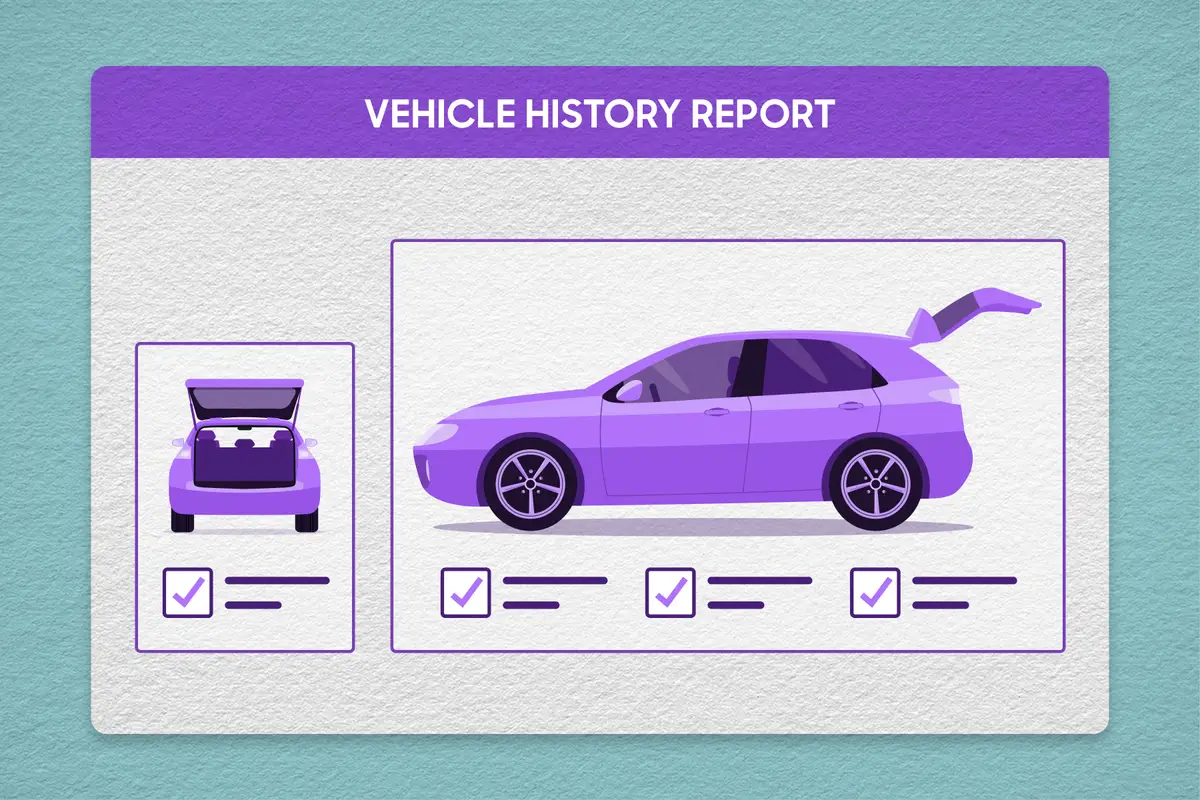4 Guys, 700 Pounds, 600 Miles: Can the Genesis G70 Handle All That?


Luxury sports sedans are known for performance, but what happens when you load them up with people? I did just that in Cars.com’s current long-term test car, the 2019 Genesis G70, schlepping three friends and light luggage from Chicago’s southwest suburbs to St. Louis and back. The trip spanned 587.4 miles — a perfect break-in period after replacing the sedan’s front-passenger tire.
Related: Tire Damage on 2019 Genesis G70 Results in Close Shave
- ${price_badge()}
- ${ami_badge()}
- ${battery_badge()}${ev_report_link()}
- ${hot_car_badge()}
- ${award_badge()}
- ${cpo_badge()}
${price_badge_description}
${ami_badge_description}
The EV Battery Rating is based on this vehicle's current expected range relative to the vehicles expected range when new. ${battery_badge_text}
This vehicle is certified pre-owned, backed by a manufacturer warranty, and typically undergoes a rigorous multi-point inspection to ensure quality and reliability.
This vehicle is currently in high demand given its competitive price, desirable features, and overall condition, and may have a higher chance of selling quickly.
Shop the 2019 Genesis G70 near you


A survey of my cohorts’ approximate weight (for documentation, not decorum) rendered total ballast at some 700 pounds. That’s from four adults and overnight bags for our march to the Arch — plus a few pounds extra for the ride back, given the barbecued ribs consumed in the Gateway City. That 700 pounds is within our G70’s maximum weight capacity (904 pounds), but that sum represents some 18 percent more than the car’s empty curb weight — which fellow Cars.com editors later pegged at 3,965 pounds, including a full tank of gas — on a scale at Great Lakes Dragaway the following week.
Hurry Up and Weight
All that weight dials the G70’s thunderous acceleration back to merely proficient.
Allow me to provide some context: Our car has all-wheel drive and the top available engine, a turbocharged 3.3-liter V-6 with 365 horsepower and 376 pounds-feet of torque — enough to get the 2-ton sedan to 60 mph in 5 seconds flat, according to Genesis’ internal testing. Driven solo, it feels just that quick. Pound the gas, and the 3.3-liter G70 springs from a stop to highway speeds with power to spare.
But with four adults aboard, acceleration lost some high-revving intensity. The G70 remained strong, moving our quartet around slower traffic with relative ease — but the howling, push-you-back burst was no more.
MPG A-OK
Gas mileage, on the other hand, was good. With tires at their recommended pressure and temperatures in the 70s, the mostly highway trip averaged 28.8 mpg, according to the G70’s trip computer. My pump fill-ups averaged 27.2 mpg, although that’s from two separate pumps — not the same one, as Cars.com editors often do on measured fuel-economy tests. Still, either figure handily exceeds the AWD 3.3-liter G70’s EPA-estimated highway mileage (25 mpg). That was with a lot of cruise control, windows generally shut and liberal air-conditioning usage throughout.
Given that experts say every 100 pounds of extra weight can lower fuel economy 1-2 percent, color me impressed with our G70’s numbers. Equally impressive? The sedan’s performance on something less than premium fuel.
Grade Discrepancy
Again, indulge me some context: Genesis’ sports sedan recommends premium fuel to achieve full power, but it stops short of requiring it. Officials told me at last year’s media preview that the sedan can run on 87-octane all day with no problem — a provision some competitors warn against. We’ve been filling our G70 with premium fuel, 93 octane in most cases, though in a few instances 91 octane, the minimum grade for premium.
I stumbled into testing sub-premium gas by accident, filling most of the tank with 87 octane while taking photos of the G70 at a gas station in west St. Louis. At 10.1 gallons in, I realized my error and, after some choice words I shan’t repeat here, switched to 93 octane for the remainder. The G70 has a 15.8-gallon tank, so my Missouri mishap meant 64 percent of the tank now had 87 octane. I’d have to drive back to Chicago on the rough equivalent of mid-grade, 89-octane gas.
It’s Still a Gas, Gas, Gas
Rough, however, the G70 was not. Although I didn’t conduct any measured acceleration tests with 89-octane-equivalent fuel, the G70 felt just as capable in highway acceleration for the return leg. With four adults aboard, the drivetrain had similar reserves to overtake slower traffic, and high-revving acceleration up various onramps struck me as similar.
Back in the Chicago suburbs, I filled with 9.8 gallons of 93 octane, which brings the G70’s fuel mixture back into premium territory. But if my experience proves anything, owners of the 3.3-liter G70 aren’t missing out on that much by filling up with the cheaper stuff — and given premium fuel averages 22 percent more per gallon as of this writing, per AAA, I can’t blame them.
More From Cars.com:
- 10,000 Miles With a 2019 Genesis G70: We’ve Spent Less Than $4 on Anything Besides Fuel (and Snacks)
- Genesis Connected Services Enhance Our G70 Ownership Despite a Sluggish App
- Get It in Writing: Majority of Genesis Dealers Can’t Provide Promised Online Service Records
- 6 Features Our Genesis G70 Doesn’t Have That We Wish It Did
- We Bought a 2019 Genesis G70: Here’s What We Paid
- 2019 Genesis G70 Is Legit, Bruh
Cars.com’s Editorial department is your source for automotive news and reviews. In line with Cars.com’s long-standing ethics policy, editors and reviewers don’t accept gifts or free trips from automakers. The Editorial department is independent of Cars.com’s advertising, sales and sponsored content departments.

Former Assistant Managing Editor-News Kelsey Mays likes quality, reliability, safety and practicality. But he also likes a fair price.
Featured stories




